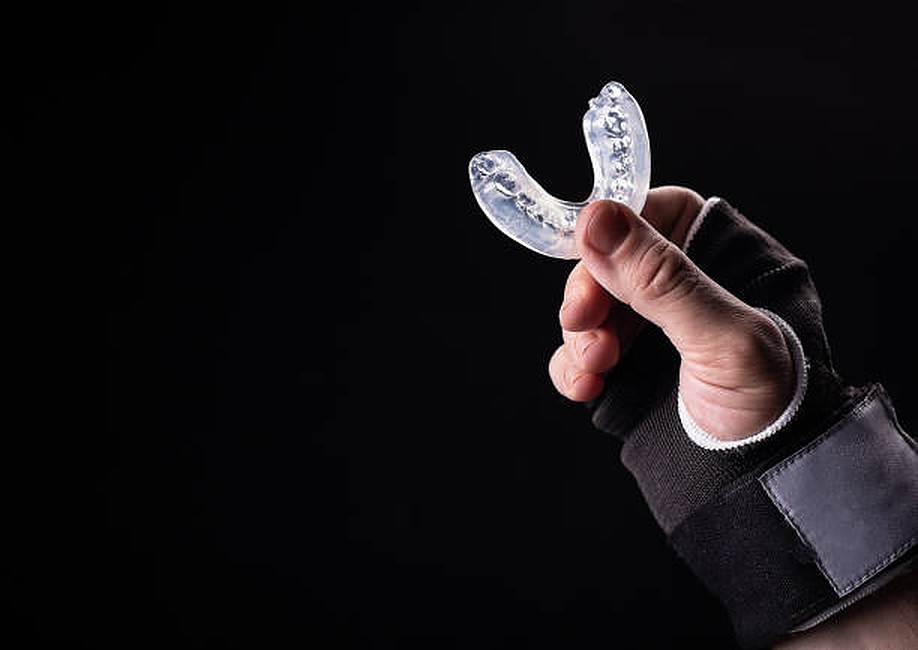Many people suffer from grinding their teeth at night, which can lead to painful headaches, jaw pain, and chipped teeth. Grinding can also affect the quality of sleep and cause you to wake up randomly.
Many people who clench their jaw and grind their teeth are not even aware of the problem. If you do not have someone sleeping next to you, there can be some indications that can help you determine if there is an issue, and whether you should see your doctor.
A lot of sleepers find relief by using mouth guards. If you are unsure whether you have grinding problems while sleeping, here are 6 signs that tell you to you need a visit to the dentist – fast!
1) You Experience Headaches When Waking Up
When you wake up and you are already in pain from a headache, this can be a sign you are grinding your teeth at night. Your jaw builds up a lot of pressure when your teeth are rubbing together at night, which causes the pain in the sides and back of the head. Some type of protective mouth wear can be very helpful in diminishing this issue.
With enough time and pressure, headaches can even worsen into migraines. Some other effects include:
- Toothaches
- Earaches
- Shoulder pain
Chronic migraines and other issues can cause your health to deteriorate, so it is important to fix this issue when it is minor rather than serious.
2) Your Teeth are Chipped
While headaches are a common problem for those that grind their teeth mildly, chipped teeth can cause a much bigger issue. If you notice your teeth are eroding or chipping over time, then you are probably grinding your teeth at night.
Your mouth can only withstand so much pressure and strain during the night before your teeth start to chip and wear out. You may find your teeth feeling more sensitive. Some signs your teeth are eroding include:
- Flat top molars
- Shorter front teeth
- Cracks starting to show up in your teeth
Eroding teeth shows that your grinding has become serious, and it is time to visit a professional for treatment.
3) You Have TMJ Syndrome
TMJ (temporomandibular joint) syndrome is characterised by pain in the jaw joint, and it can be caused by a variety of health issues.
Excessive grinding can be a cause, since it can be a source of painful inflammation in the jaw area. Other symptoms of TMJ are dizziness, migraines, and even ear pain.
If you are experiencing these issues, it is best to visit a dentist before your condition worsens. TMJ is a serious condition that you don’t want to leave untreated.
If your dentist diagnoses you with TMJ syndrome then you may be a candidate for a mouth guard. Your pain caused by TMJ disorder will decrease, the grinding will stop, and your mouth will be protected if you start to wear a mouth guard diligently.
4) You Experience Soreness and Jaw Pain
When you grind, many of your jaw and facial muscles are put under stress. This causes stiffness and pain while consuming food. There could also be a clicking sound present when chewing your food, and if left untreated, speech may start to decline as well.
It is important to visit a doctor when experiencing these symptoms to protect against further damage.
5) Your Sleep is Interrupted
If you find yourself waking up in the middle of the night from soreness and jaw pain caused by grinding, then it is clear you should visit a professional. This issue can even be caused by a more serious condition called sleep apnea.
Sleep apnea occurs when throat muscles relax, the airways are blocked, and your breathing is interrupted. Many people with sleep apnea suffer from teeth grinding at night, and men are more likely to be afflicted.
It is important to make sure you are getting restful, uninterrupted sleep each night. When you wake up from a deep sleep, your mood can be negatively affected, and your attention span can decline. Sleep is meant to restore the body, and if something is preventing you from getting rest, then it can have serious consequences on your health.
6) Other People Tell You
If other people like your significant other or family members have told you that you grind your teeth at night, then take them seriously!
To avoid further damage or wear and tear, then visit your doctor immediately. You do not know how long you have been grinding your teeth before someone noticed, and it is always better to be safe than sorry when it comes to dental care.
Watch for the Signs, and Take Them Seriously!
If left untreated, grinding your teeth can cause tooth decay, headaches, or even migraines. Teeth grinding can be a symptom of other serious health issues as well. However, it may take a while to realise that you are a teeth grinder since this is something that occurs when you are sleeping.
If you find yourself waking up with painful headaches, chipped teeth, or jaw pain, it may be time to visit a specialist. If your teeth start to erode or chip, this is a tell-tale sign that you are having difficulties at night. Try to enlist the help of a friend or family member to assess the severity of your teeth grinding.
Why Wear a Mouth Guard?
A treatment like a mouth guard can prevent your teeth from grinding together while sleeping. Other treatment options like de-stressing before bed and maintaining a regular bedtime routine can help ease symptoms. Even trying a new sleeping position and creating a comfortable sleep environment can improve the teeth grinding. However, a mouth guard is designed to give you the protection you need to prevent intense pain.
Using a mouth guard while sleeping and visiting your dentist regularly will save yourself from a lot of unneeded pain, as well as wear and tear on your teeth.

